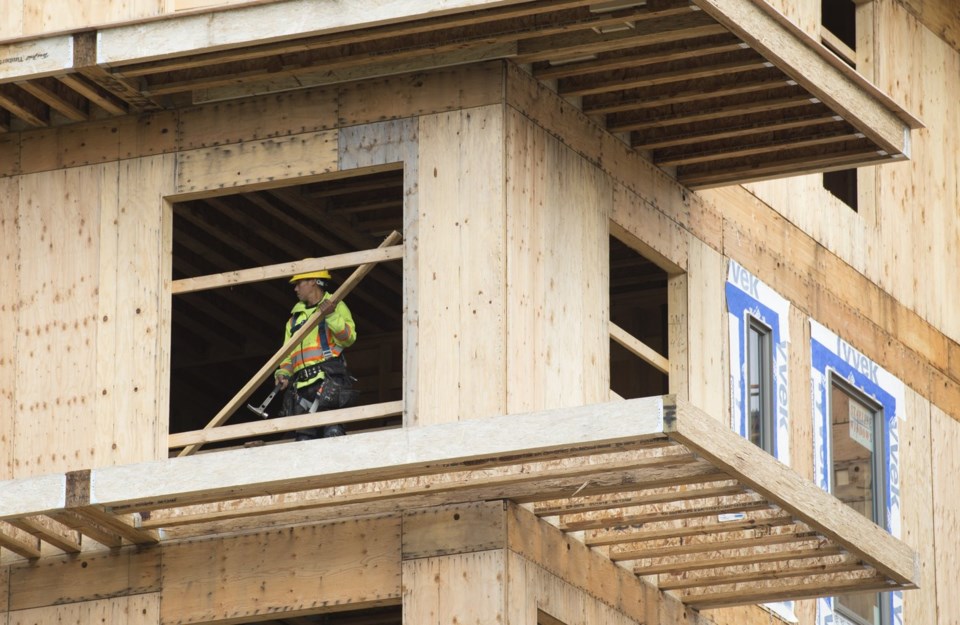Canada Mortgage and Housing Corp. says the annual pace of housing starts in January rose three per cent compared with December, helped by strength in multi-unit starts in Quebec and B.C.
The national housing agency said the seasonally adjusted annual rate of housing starts was 239,739 units in January, up from 232,492 in December.
The increase came as the annual pace of urban starts also rose three per cent to 220,643 in January compared with 215,052 in December. The annual pace of multi-unit urban starts, such as apartments, condominiums and townhouses, rose eight per cent, driven by more purpose-built rentals concentrated in Quebec and B.C.
Actual housing starts were up seven per cent year-over-year in cities with a population of at least 10,000, with 15,930 units started in January 2025, compared with 14,883 in January 2024.
Montreal posted a 112 per cent year-over-year increase in actual housing starts in January, while Vancouver recorded a 37 per cent increase, both driven by higher multi-unit starts. Starts in Toronto dropped 41 per cent from January 2024, due to decreases in multi-unit starts.
The annual pace of rural starts were estimated at 19,096 units.
CMHC said the six-month moving average of the seasonally adjusted annual rate of housing starts was down 2.5 per cent at 236,892 units in January.
"While these increases show early signs of progress to begin the year, foreign trade risks add significant uncertainty for housing construction going forward," said CMHC deputy chief economist Tania Bourassa-Ochoa in a statement.
CMHC's recent housing market outlook report projected a rebound in home sales and prices this year as homebuyers take advantage of improved borrowing conditions. It forecasted starts to slow down from 2025 to 2027, mainly because of fewer condominiums being built, as investor interest lags and demand from young families wanes.
The agency said its outlook was clouded by the threat of widespread tariffs from the U.S.
A trade war between Canada and the U.S., combined with factors such as reduced immigration targets, would likely slow the economy and limit housing activity, even as some households see improved buying power in the short-term, it said.
The agency's 2025 market outlook report said in a scenario where high tariffs were imposed, it would temporarily raise inflation while prompting the Bank of Canada to lower its key policy rate to support the economy.
In that scenario, it predicted a recession would prolong Canada's housing recovery, leading to more homebuyers delaying purchases and fewer homes being built.
This report by The Canadian Press was first published Feb. 17, 2025.
Sammy Hudes, The Canadian Press



